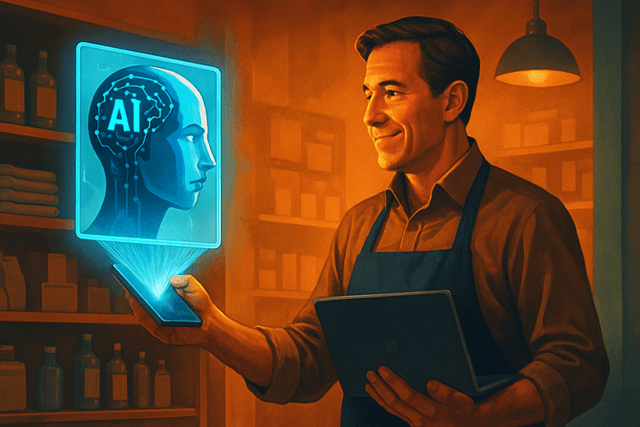The AI landscape has dramatically evolved since the initial generative AI boom of 2022-2023. While large language models like GPT-4.5 and Claude 3.5 continue to advance, the spotlight has shifted to autonomous AI agents—systems that can independently perform complex tasks with minimal human intervention.
Unlike traditional chatbots that merely respond to prompts, today's AI agents can reason through problems, develop action plans, and execute multi-step workflows across various platforms. "The true definition of an AI agent is an intelligent entity with reasoning and planning capabilities that can autonomously take action," explains Maryam Ashoori, Director of Product Management at IBM watsonx.ai.
This shift toward agentic AI is gaining tremendous momentum. According to a recent IBM and Morning Consult survey, 99% of enterprise developers are now exploring or developing AI agents. Microsoft reports that workers at nearly 70% of Fortune 500 companies already use AI assistants like Microsoft 365 Copilot for tasks ranging from email management to meeting notes.
The practical applications are expanding rapidly. In customer service, AI agents can now handle entire workflows—from conversing with customers to processing payments, checking for fraud, and completing shipping actions. For knowledge workers, agents help prioritize information, summarize content, and execute routine tasks, potentially increasing productivity by 30-50% according to some studies.
However, experts caution that complete autonomy remains aspirational. "In 2025, a lot of conversation will be about drawing the boundaries around what agents are allowed and not allowed to do, and always having human oversight," notes Ece Kamar of Microsoft's AI Frontiers Lab. The most successful implementations currently focus on internal processes with limited financial impact, such as IT support or vacation scheduling.
The technology is being driven by significant advancements in AI models' reasoning capabilities. Stanford University's 2025 AI Index highlights how benchmark after benchmark has been "saturated" by today's models, which can now solve complex problems through logical, multi-step reasoning similar to human thinking. These capabilities are enhanced by improved memory, contextual understanding, and the ability to process multimodal data across text, images, and video.
For consumers, this means AI companions that can simplify daily life by managing information overload, providing personalized recommendations, and handling routine tasks. Microsoft's Copilot Daily, for example, now starts users' days with customized news and weather summaries delivered in a familiar voice.
As we move through 2025, the line between experimental technology and practical tool continues to blur. While challenges remain in security, reliability, and appropriate human oversight, AI agents are rapidly becoming an integral part of both work and home environments—transforming how we interact with technology and each other.

